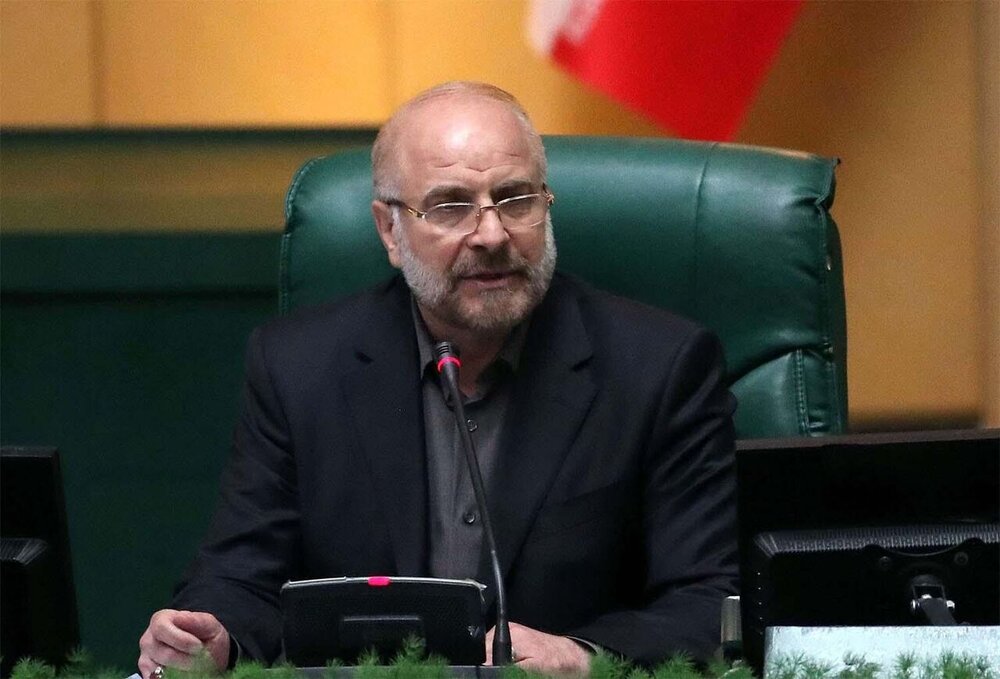Speaker: Ejei’s deep knowledge of Judiciary will benefit country

TEHRAN — Parliament speaker Mohammad Baqer Qalibaf said on Monday that the deep knowledge and understanding of Gholam Hossein Mohseni Ejei as the new judiciary chief will benefit the country.
Qalibaf made the remarks during a ceremony in which Mohseni Ejei replaced Ebrahim Raisi as the new judiciary chief.
In a decree on Thursday, Leader of the Islamic Revolution named Mohseni Ejei as Judiciary chief. This was done as Raisi, who won the June 18 presidential election, is preparing to form his new government, which will start work in early August.
“With the knowledge that I have of Mr. Mohseni Ejei and his deep and accurate knowledge of the Judiciary, the (reform) movement that started during Raisi's time will proceed more rapidly with an extra effort,” Qalibaf said.
Qalibaf went on to say that it is an unforgivable sin if somebody distances himself from the concerns of the people, noting people will never accept such an approach from the officials.
The bitter reality is that today the country is in a difficult situation and it is getting worse for the people, especially the underprivileged, in terms of economic livelihood and investment, the parliament speaker remarked.
He also said people’s trust as the important capital of the Islamic Republic is also declining.
“In the area of social issues, where our biggest social capital, which is the people’s trust, is declining, which is why we are not in a good situation, and this is a bitter reality,” he noted.
The top parliamentarian continued, "We thank God that a new era of governing the country has begun and we are on the verge of starting work and responsibility in a new era, which is a very unique opportunity."
The current parliament, which started its work in spring 2020, has said it will focus on promoting the living standards of the underprivileged classes of society. President-elect Raisi has also promised to follow such a policy.
Qalibaf added people will not accept any excuse from the officials for not working diligently, and this is the duty of all.
“There is no excuse for failure. We are all obliged to be proficient and accountable to the people, to the Leader and to God. We are obliged to prove the effectiveness of religion in governing the society, we are obliged to outline a good life especially for the deprived and the oppressed, and we are obliged to increase economic stability, hope and vitality in the society with proficiency and accountability,” he highlighted.
He continued by saying that it is clear that the main burden of this responsibility will be on the shoulders of the government in the future because the foundation of the country's capacities is in the hands of the government as the executive branch.
The speaker did not rule out the importance of the other two branches (Judiciary and Parliament), saying they must help the government as well.
“It is clear that the other two branches must complete these activities. In this cooperation, they have empathy and synergy and efficiency and accountability, and today this empathy, cooperation and synergy should be seen not only at the level of the heads of the three branches but also to the lower levels of responsibility from district and governorship to all levels in wide and deep communication with people,” he elaborated.
Qalibaf stressed the need to smartening the government sectors for more competence and accountability, and to make activities transparent, reminding people that "marginalization and distancing oneself from people's concerns is an unforgivable sin and makes people fell unhappy. They will never accept this from us.”
He added that this does not mean that the officials do not pay attention to independence of the branches of government and that there is no difference of taste in expert meetings and specialized studies, but the independence of branches is recognized according to the constitution and all officials are obliged to observe it.
“That is, the interaction between the workforces with prudence and empathy will lead to a unified outcome for the benefit of the people, and we will feel God's pleasure in the people's satisfaction, and the people will approve it,” Qalibaf noted.
The parliament speaker pointed out, “We must believe in the divine traditions and our goal and intention must be for God and for the people. The nature of our work must be working hard. We must work well and do good work and be effective and see its result in the society, because the legitimacy of our officials depends on our role in the field of justice and broadening it.”
He added, “God willing, we will take a serious step and do our duty with the support and good prayers of the people.”
SA/PA
Leave a Comment